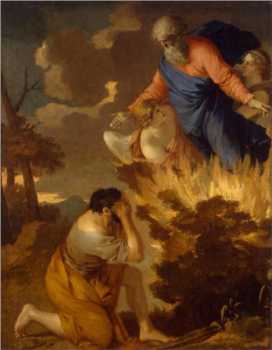 I have a problem when I ask some people to help me do something unfamiliar: I find myself trying to anticipate what they’re going to teach me next. Or I won’t pay full attention and start trying to do the task after only a couple of instructions. Or I don’t really listen carefully to what they’re saying.
I have a problem when I ask some people to help me do something unfamiliar: I find myself trying to anticipate what they’re going to teach me next. Or I won’t pay full attention and start trying to do the task after only a couple of instructions. Or I don’t really listen carefully to what they’re saying.
So if (say) I ask someone how to make pancakes, they’ll usually have a one-sided conversation that sounds like, “Okay, now gently add the flour; sprinkle it in. Sprinkle! Too much! SPRINKLE! Okay; now gently fold in two eggs. Easy does it; that’s only one egg. You need another. Why aren’t you being gentle? And why are you reaching for a third egg?!”
I’ve tried to get better in recent years, but it’s an ongoing problem. In fairness, I’ve had this same experience where I’ve been on the instructive side, struggling to get someone to actually pause and listen to wisdom.
I was reminded of these times in my life when I reflected on today’s readings. The first reading, from Exodus, depicts the first personal encounter between Moses and the Lord, who spoke to Moses from a burning bush. God says, “Come no nearer! Remove the sandals from your feet, for the place where you stand is holy ground.”
Today’s Gospel selection from Matthew touches on similar ground. The beginning of Christ’s prayer to the Father begins, “I give praise to you, Father, Lord of heaven and earth, for although you have hidden these things from the wise and the learned you have revealed them to the childlike.”
Looking back on my own experience, I realize that there is something missing when I fail to listen to others: humility. Sure, I may have asked for insight, but I’m still in control of my life! I’m the master of my destiny! Now, how many eggs do I add, again?
For me, my reflections on today’s readings take that experience and amplify it immeasurably. Before Moses could approach the burning bush, he needed to remove his sandals. In a literal sense, he needed to show humility to the Lord. In a figurative sense, he needed to leave behind the material attachments that would separate him from God.
Similarly, Jesus notes that, while the fullness of God’s wonders and Christ’s teachings have been rejected by “the wise and the learned,” they are accepted by the “childlike.” Again, the undercurrent is clear: Those who fail to have proper humility cannot have the message of Jesus take root, while those who discard their hubris and approach the world with a childlike acceptance can gain understanding.
It’s hard to find humility. It’s tough to approach the Lord with a childlike acceptance and wonder. It is difficult to leave behind our comfort to approach the Lord. But in the same way that first barefoot step of Moses marked the beginning of a lifelong journey serving the Lord – one that has borne fruit to this day – our own first humble steps in approaching the Lord can begin an unexpected lifelong journey. And though it’s difficult to approach the Lord with a childlike open mind, that exercise in humility can be the most important step to a new life with Christ.
What has your hubris made you cling to? What are you too prideful of to release, to begin to a walk anew with the Lord? Past sins can be forgiven, thanks to sacramental Reconciliation. A renewed commitment to Christ may begin with only the humble footsteps you take to receive Holy Communion with childlike acceptance. The Lord has done nothing to keep you from Him; the only blocks to that relationship are our own human failings. If your pride is keeping you from a relationship with God, let it go and approach Him. He’s waiting.
